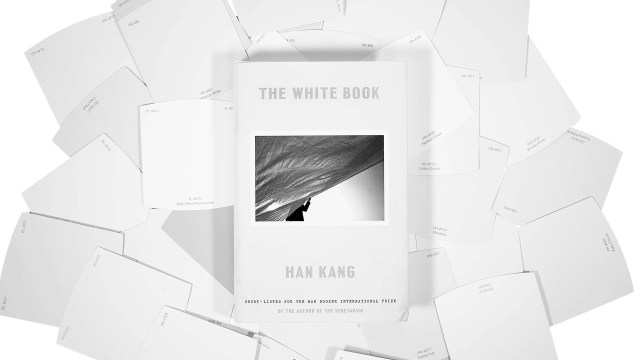Happy March! This month we’re reading Han Kang’s The White Book, which combines fiction, essays and poetry into a rumination on life and death. Each chapter centers on a single object, which is used to explore both the color white and the grief surrounding the author’s sister, who died as a baby. The book is not so much a reflection on grief, however, as it is a look at the repercussions of events that happen before we’re born.
We’ll start with an overview of the book and some discussion questions that we’ll come back to as the month progresses. But first, if you’re not already a member of our Babbel Book Club Facebook group, it’s never too late to join!
The Book
The White Book was originally published in Korean in 2016 under the title 흰. It’s hard to classify what kind of book this is because it blends memoir, history and fictional elements together. The book, written during the author’s stay at a writing retreat in Warsaw, looks at white objects — snow, lace curtains, butterflies — and meditates on them. Intertwined is a fictional story based on what would have happened in the life of the author’s sister, who died as a baby, had she lived. Han Kang also comes back often to Warsaw itself, a city nearly completely destroyed in World War II.
The effect is ethereal, with only brief glimpses at a solid narrative running through it. All this may sound strange — and it is — but The White Book is most rewarding when you give yourself over to the words. Each chapter, which is typically only a page or two, can be looked at independently, each their own study in emotion. One chapter focuses on “breath cloud,” describing the feeling of breathing cold air in and out. Another is about “white city,” thinking about the footage of Warsaw, Poland, being destroyed by the Nazis. There are threads that tie the whole book together, but there are many ways to read this book. Most important is to take it slowly. The book is short, but it contains multitudes.
The Author
Han Kang is a South Korean poet and novelist. Born in 1970, she was raised in Seoul and had her first poetry published in 1993. She took part in the International Writing Program at the University of Iowa, and gained international renown in 2016 when she won the Man Booker International Prize for The Vegetarian, which was originally published nine years earlier in Korean. Along with regularly publishing new work, Han Kang is a professor of creative writing at the Seoul Institute of the Arts.
The Translator
The White Book and all of Han Kang’s other books were translated by British translator Deborah Smith. She’s also worked on books by Korean authors Ahn Do-Hyun, Bae Suah and Bandi. She also started the publishing company Tilted Axis Press, which focuses on translating contemporary Asian literature. Currently, Smith is working on a Ph.D. at SOAS London, where she’s focusing on Korean literature from the 1990s to now.
The Language
Despite having a few related languages that went extinct, Korean is sometimes considered a language isolate, meaning it is not related to any other language. Technically, however, it is part of the Koreanic language family — called a micro-family, because of how few languages it comprises — with the Jeju language, which is spoken mainly by older people in the Jeju province of South Korea. The language descends from a Proto-Korean, which spawned Old Korean, followed by Middle Korean, all leading up to modern Korean.
Korean is spoken by over 77 million people around the world. The Koreas make up a majority of the speakers — about 48 million in South Korea and 23 million in North Korea — but there are also sizable communities of Korean speakers in China (about 2.7 million), Japan (905,000), Uzbekistan (250,000) and Russia (42,000). Korean is the official language of both North and South Korea. It’s also worth noting that because of their isolation from each other, North and South Korea speak slightly different dialects of Korean. The two are still mutually intelligible, however.
Discussion Questions
- What associations do you have with the color white?
- What did you think of the author’s use of objects to explore her ideas?
- Han Kang ponders the idea that had her older sister lived, she herself would likely not exist. Have you fixated on anything like this, where a small change in the past could lead to massive differences in the present?
- Another thread is the setting of the book: Warsaw. Why does Han Kang tie Warsaw and her sister together? What does Warsaw represent overall?
- One chapter is about “Laughing whitely,” which is defined as “Laughter that is faint, cheerless, its cleanness easily shattered.” Have you heard of a phrase like this in other languages?
- Did one particular chapter stand out to you? Why did it?
- If you had to choose a color to focus on to tell the story of your life, which would it be?
Stay tuned for the rest of the month to join discussions about the book and the Hebrew language. Want to learn more about Babbel Book Club? Click here.
